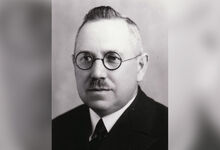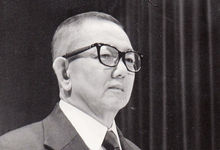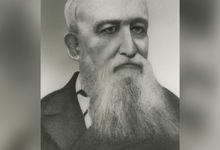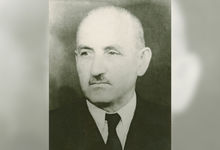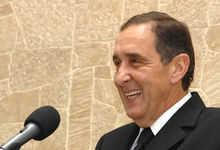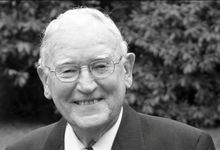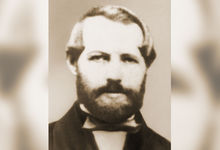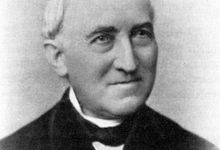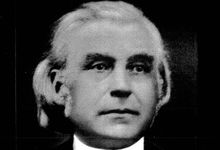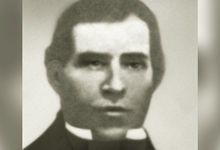A man of many talents
Wilhelm Sebastian was a man who was entrusted with special missions. He was barely 25 years old when he was sent from Hamburg to Brunswick to establish a congregation there. One of the special assignments given him is still of importance to the Church today.
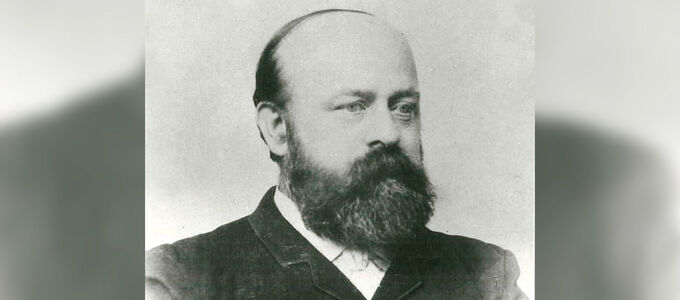
Wilhelm Sebastian was born 175 years ago in Germany. After he completed his studies to become a mechanical engineer, he became acquainted with the Apostolic congregation in Schladen near Brunswick. He was sealed in 1868 by Apostle Carl Wilhelm Louis Preuss.
From Schladen to Hamburg
When he lost his job in Schladen, Wilhelm Sebastian moved to Hamburg, where he had found a good job. He worked along in the local congregation and was quite committed, which did not escape the attention of Apostle Preuss.
From Hamburg to Brunswick
In fact, Apostle Preuss had such confidence in the young man that he decided to send him to Brunswick in 1871, where the then Elder and later Chief Apostle Friedrich Krebs needed help with pastoral care. Apostle Preuss called the young brothers of the Hamburg congregation together and asked them which one of them wanted to go. None of them did. Apostle Preuss then turned directly to Wilhelm Sebastian and asked him: “Sebastian, how about you?” He replied, “If you send me, I will go.” That same year still, he quit his job and moved to Brunswick. There the young man, by then he was a Sub-deacon, found employment in a sewing machine factory and worked for the Church in his spare time. Just one year later, he filed an application with the Brunswick police department to establish an apostolic congregation.
In 1872 Wilhelm married Anna Fischer. She and her parents were among the first in Schladen who were sealed. Apparently, it was her father who first testified to Friedrich Krebs, the later Chief Apostle, of his faith and the re-established Apostle ministry.
From Brunswick to Wolfenbüttel
Wilhelm Sebastian, by then a Deacon, was sent to Wolfenbüttel that same year still to establish a congregation. He bought a building—including a shop that sold bicycles and sewing machines—and converted the barn on the property into a place of worship for the congregation that was yet to be established.
The congregation of Wolfenbüttel was one of the poorest. The first members were a blind man and a ragpicker. But Wilhelm Sebastian refused to be discouraged and undertook many trips either on foot, by horse and cart, or by train to testify of his faith throughout the region.
From male choir to hymnal
In 1899 Friedrich Krebs, by then he was Chief Apostle, stepped off a train in Brunswick and was welcomed by a male quartet singing Christian songs. It was an absolute novelty in the Apostolic Church. Chief Apostle Krebs was thrilled. He realised how well music and Church go together and asked that choirs and orchestras be promoted in the Church. In addition to this, Wilhelm Sebastian was given the special task of publishing a New Apostolic hymnal. Sebastian, who had meanwhile become an Elder and would soon be ordained a Bishop, was happy to carry out this new task. The congregation of Wolfenbüttel soon had a choir and a children’s choir.
It was probably in 1898 that Wilhelm Sebastian published the first New Apostolic hymnal as a text edition. It also included a brief guide for the ministers on how a divine service was to be structured, how prayers could be formulated and what could be said at baptisms or weddings, for example. Now the members of the Church had a hymnal containing 390 songs, arranged according to holy days and the liturgical year. A little later, an appendix with 131 songs followed, containing revival songs from independent evangelical churches and Protestant chorales, but also original compositions. Soon after, the Bielefeld congregation provided an organ accompaniment book.
From Wolfenbüttel back to Brunswick
Eventually, Wilhelm Sebastian was ordained as an Apostle by Chief Apostle Krebs. His publishing work was taken over by Brother Karnstädt in Wolfenbüttel. Wilhelm Sebastian and his wife and two daughters, Elise and Margarete, moved into an apartment above the church that was built in Brunswick. So that Wilhelm Sebastian could concentrate on his ministry, his son took over the family business in Wolfenbüttel.
When Apostle Sebastian took over the working area of Lower Saxony, Saxony-Anhalt, and Saxony/Thuringia in 1905, he began to feel just how exhausting this work was and asked to be retired. Two years later, he went into retirement. He was able to enjoy five years of retirement before he passed away in 1912, just a few days short of his 66th birthday.
Photo: NAC Western Germany central archive


